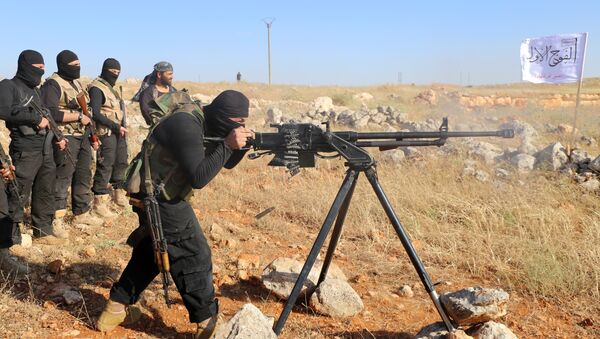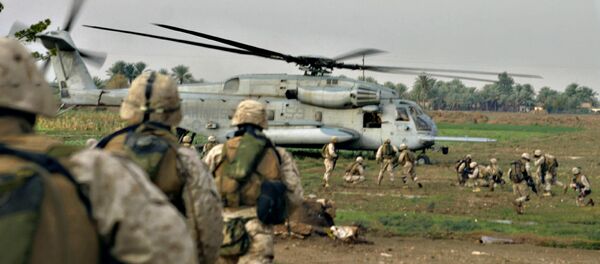It is all about the timing. The success of the Syrian Arab Army and its allies "undermines" the West and its proxies' "position and their relevance" at the negotiating table in Geneva, the expert noted.
"I think this is all a cat and mouse game – preparing for the upcoming talks in Geneva, trying to get a little bit more leverage on the ground because they've lost so much in the last few months" to the Syrian army, the Russian Air Force and other allies, she explained.
After all, the Pentagon's previous effort aimed at empowering so-called moderate Syrian rebels to help them tackle Daesh turned out to be a disaster – one that left a major stain on the agency's reputation. US defense chief Ashton Carter said last September that the $500 million program produced five or six fighters. The rest, including US-provided military equipment, were absorbed by al-Qaeda, Daesh and other terrorist groups.
The analyst referred to the US foreign policy in the Middle East as "shortsighted," pointing to the fact that the US has consistently ignored a working regional solution to defeating and degrading Daesh.
"There are ground forces operating in the Syrian theater that are capable of defeating [Daesh] and all other terrorist groups. These ground forces are all native. You don't have to import natives from another country," she explained.
The US wants to "avoid" helping these local fighters because many of these groups are affiliated with what Narwani referred to as the 'Axis of Resistance,' including Iran, Syria and Hezbollah. "The US is prepared to let al-Qaeda, [Daesh] and other terrorist groups thrive in order to keep the 'Axis of Resistance' at bay," she observed.



